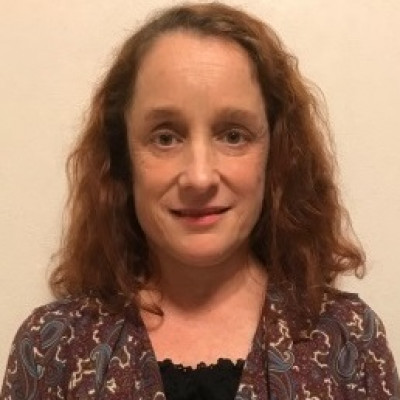Sessions / Location Name: F33
Physical Location
Location: F33
Building: Miwa Campus Building < The University of Nagano
Imagining anti-oppressive GCE EFL teaching theory & practice #2861
This presentation introduces the theorizations and specific anti-oppressive classroom practices developed in the 1st year of a 3-year Japanese-government funded project. The specific theory of anti-oppressive education introduced was developed by combining anti-oppressive theory and global citizenship education (GCE) theory for EFL classroom contexts in Japan. To build the theory, Andreotti’s (2011) theorizations are combined with terminology from Sensoy and DiAngelo (2017) to explain an anti-oppressive theory and practice, which not only uncovers the complexities and fluidity of societies, but also uncovers the systemic oppression that organizes them. Foundational terminology is explained to understand systemic oppression and constitutive subjectivities (Coloma, 2008), and this theory is used to explain several anti-oppressive teaching practices which promote self-reflexivity and go beyond inclusion. Anti-oppression teaching methods are shared, drawing on personal experiences in pre-service education. As a teacher-educator, the presenter explains the important task of teaching not only content, but also the realities of complex local and global social justice issues that impact the students’ future teaching careers. In this new COVID-19 era where injustices are magnified, these anti-oppressive practices encourage educators to go back to the basics to understand their role in systemic oppression, as well as their role in dismantling it.
Teaching pronoun use in gender-neutral EFL classrooms: An autoethnographic needs analysis #2706
This autoethnographic needs analysis uses the sociopolitical framework of precarity (Travers, 2018) to contextualize the researcher's experience of learning and teaching languages as a transgender man—first as a student undergoing gender transition, and then, later, as a transgender assistant English teacher in Japan. These needs are shown to have been opaque, ambiguous, and prone to change over time, indicating the significant challenge of identifying and meeting needs of LGBTQ+ students while addressing issues related to gendered language in the classroom. Because of the potential pitfalls of teaching political topics in the classroom (Byram et al., 2021), taking a perspective of intercultural exchange and awareness-raising is recommended, with the goal of developing learner awareness of potential communication challenges related to gender identity and expression. The analysis concludes with specific suggestions, such as grammatical and pragmatic instruction in the use of singular "they" (Grote, 2020), using realia such as SNS accounts to raise awareness of changing pronoun conventions in English, and the pros and cons of strategies such as "pronoun signposting" in the creation of a gender-friendly classroom environment (Airton, 2019).
Intersectionality: From identity to social justice in the classroom #2701
Intersectionality, an intellectual framework first named in the 1980’s by African-American scholars including Kimberle Crenshaw and Patricia Hill Collins, is fundamental within feminist and anti-racist thought and activism. Identity is viewed as a matrix, a crossroads of various identities which are experienced differently by people of different groups, including races, social classes, and genders. Teachers and learners can benefit from awareness of this complex framework, keeping in mind that the ultimate goal is to move beyond personal identity and promote social justice, inclusion, and equality. Indeed, many of us are working from an intersectional standpoint already, understanding that we all have both privilege and challenge, and insisting that members of oppressed groups be given space to speak for themselves. Even Japanese university students, who may assume that everyone in the room comes from a similar background, will find that the people with whom they interact daily are surprisingly diverse. This presentation focuses on ways in which the speaker has introduced the concept of intersectionality to students with a wide range of language skill levels. Participants will be invited to discuss their experiences and reflect upon ways they might apply intersectionality in their own teaching and learning contexts.
Teaching world religions in EFL: Basic knowledge for global citizens #2699
Part of becoming a global citizen means learning about the diversity of religions in our global village. The English classroom can be an exciting place to explore this topic while promoting international understanding, cultural awareness and interest in the wider world. This talk will describe a content-based EFL unit designed for Japanese college learners on the topic of “world religions.” The unit aims to help students: A) gain a basic knowledge of the world’s major religions, B) acquire basic religious vocabulary needed to follow current events, C) overcome religious stereotypes (for example, that “Muslim = terrorist”), D) develop the respect, empathy and tolerance needed in our multicultural world. The unit consists of task-based activities that actively engage students in exploring the beliefs, traditions and symbols of five world religions (Christianity, Islam, Judaism, Buddhism, Hinduism). The activities are designed to promote vocabulary acquisition, language practice, communication skills and critical thinking. They range from group brainstorming, readings and quizzes to guest speakers, research homework and field trips. The talk will conclude with advice for language educators on how to address this topic in class plus a list of resource books, videos and websites on world religions.
Reimagining Culture, Communication and Competence #2982
The role of culture in communication is critical and well documented yet remains a challenging aspect to teach. Understanding and explaining how to communicate effectively and appropriately across differences is an essential component of language teaching. Since Hymes' (1964) introduction, notions of social competence have endeavored to explain the implications of personal, psychological and cultural elements affecting communication. Learners today, require meta-skills similar to Byram’s (1997) ‘Savoirs’ that embody a cultural awareness including sensitivity to differences, tolerance of ambiguity, willingness to adapt and cooperate, to negotiate meaning and develop understanding. This type of Meta-Cultural Competence (Reimann 2010) proposes that knowledge becomes competence when connected with experiences and the sensitivity to realize their significance. This presentation describes 10 categories of cultural orientations and communication styles used to objectively teach unfamiliar concepts. Considering the subjective nature of culture, creating a framework of relatable and comparable features, characteristics and criteria is necessary for synthesizing and understanding culture, building empathy and competence, while avoiding othering or perpetuating stereotypes. The categories to be discussed build on concepts established by Hall (1976) and Hofstede (1980), applying their models to the analysis of real critical incidents, which can be used to raise awareness and develop Meta-Cultural Competence.




